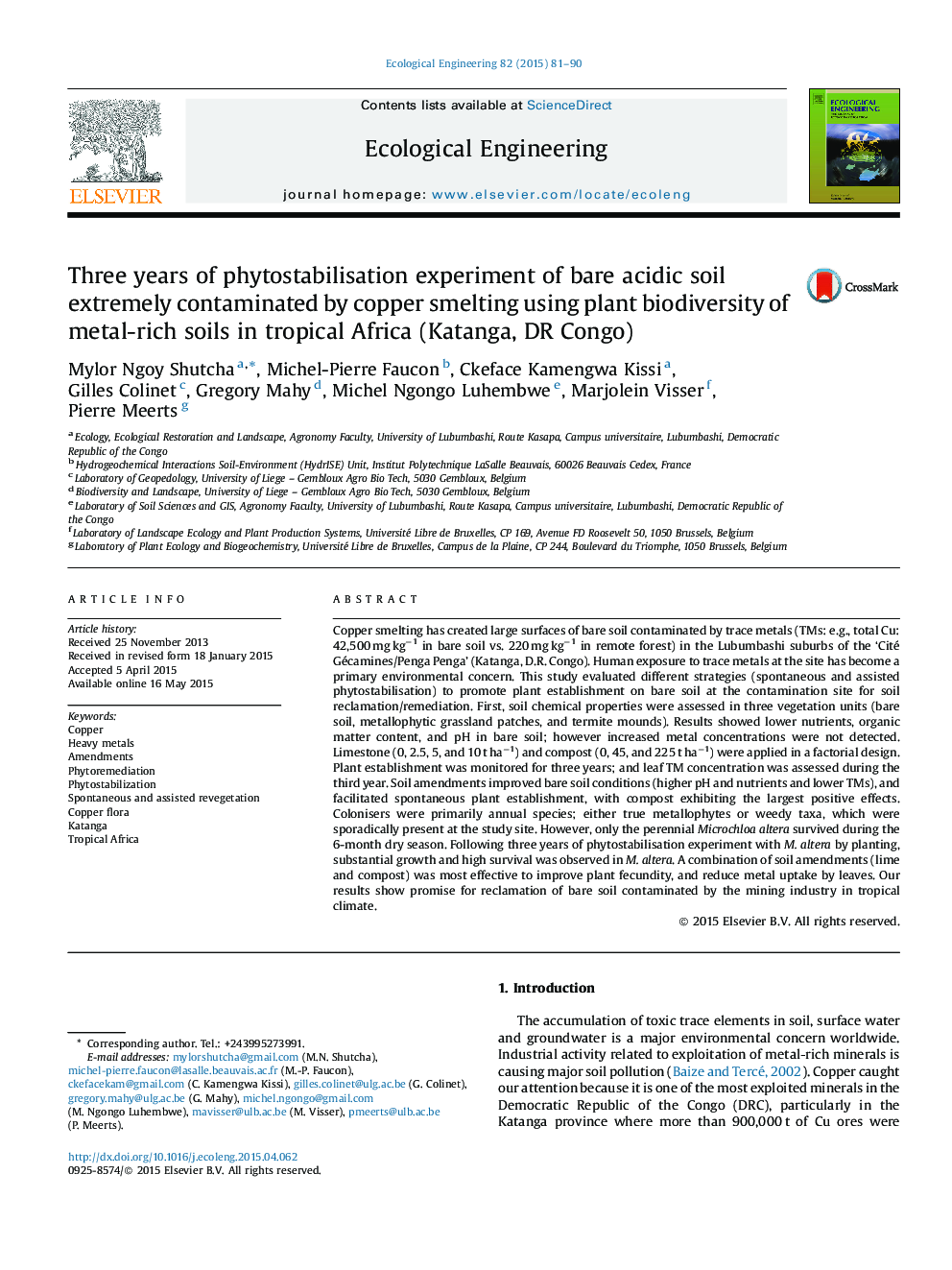| Article ID | Journal | Published Year | Pages | File Type |
|---|---|---|---|---|
| 4388951 | Ecological Engineering | 2015 | 10 Pages |
•Fallout from the Cu smelter has created bare soils highly contaminated in Cu and other trace metals.•Candidate species for phytostabilisation are selected from high plant biodiversity of metal-rich soils in Katanga.•Compost and limestone amendments improve soil properties and facilitate spontaneous plant establishment.•Toothbrush grass allow establishment of permanent vegetation in tropical climate (dry and rainy seasons) and reduce risk of metal transfer to water and atmosphere.
Copper smelting has created large surfaces of bare soil contaminated by trace metals (TMs: e.g., total Cu: 42,500 mg kg−1 in bare soil vs. 220 mg kg−1 in remote forest) in the Lubumbashi suburbs of the ‘Cité Gécamines/Penga Penga’ (Katanga, D.R. Congo). Human exposure to trace metals at the site has become a primary environmental concern. This study evaluated different strategies (spontaneous and assisted phytostabilisation) to promote plant establishment on bare soil at the contamination site for soil reclamation/remediation. First, soil chemical properties were assessed in three vegetation units (bare soil, metallophytic grassland patches, and termite mounds). Results showed lower nutrients, organic matter content, and pH in bare soil; however increased metal concentrations were not detected. Limestone (0, 2.5, 5, and 10 t ha−1) and compost (0, 45, and 225 t ha−1) were applied in a factorial design. Plant establishment was monitored for three years; and leaf TM concentration was assessed during the third year. Soil amendments improved bare soil conditions (higher pH and nutrients and lower TMs), and facilitated spontaneous plant establishment, with compost exhibiting the largest positive effects. Colonisers were primarily annual species; either true metallophytes or weedy taxa, which were sporadically present at the study site. However, only the perennial Microchloa altera survived during the 6-month dry season. Following three years of phytostabilisation experiment with M. altera by planting, substantial growth and high survival was observed in M. altera. A combination of soil amendments (lime and compost) was most effective to improve plant fecundity, and reduce metal uptake by leaves. Our results show promise for reclamation of bare soil contaminated by the mining industry in tropical climate.
